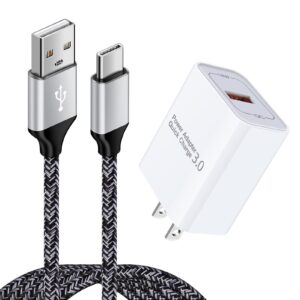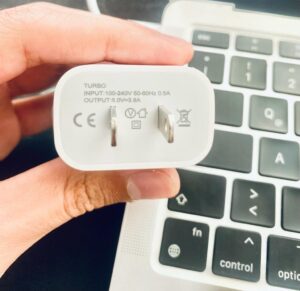Installing a Tesla charger typically costs between $1,000 and $2,500, depending on various factors such as wiring and installation complexity. As more electric vehicle owners make the switch, understanding how much it costs to install a Tesla charger becomes essential.
Home charging offers convenience and savings, but the price can vary based on your electrical system and local rates. This guide aims to break down the costs and considerations involved, empowering you to make an informed decision. Ready to plug in and power up your Tesla? Let’s dive into the details!
How Much It Costs to Install a Tesla Charger
Installing a Tesla charger can be a convenient way to ensure that your electric vehicle (EV) is always ready to go. However, understanding the costs associated with this installation is crucial for making informed decisions. In this section, we will delve into the various factors that influence the cost, provide average price ranges, and discuss some additional considerations.
Understanding the Types of Tesla Chargers
Before jumping into costs, it’s important to know that Tesla offers different types of chargers. The most common ones are:
- Tesla Wall Connector: This is the most popular home charging solution. It can charge your Tesla at a faster rate than a standard outlet.
- Mobile Connector: This charger is designed for travel and can plug into standard household outlets. It is less expensive but charges more slowly.
- Supercharger: These are fast charging stations located across the country, primarily for long-distance travel. However, installing a Supercharger at home is not practical for most consumers.
The Tesla Wall Connector is generally the one people consider when calculating installation costs for residential use.
Average Installation Costs
The cost of installing a Tesla charger varies widely based on several factors. Here’s a breakdown:
- Charger Price: The Tesla Wall Connector is usually priced around $500 to $700. This is a one-time purchase.
- Installation Fees: Professional installation can range from $300 to $1,500, depending on the complexity of the installation.
- Electrical Work: If your home requires electrical upgrades, this could add an additional $200 to $1,000.
- Permits and Inspections: Depending on local laws, obtaining necessary permits and undergoing inspections can add another $100 to $500.
Taking these factors into account, the total cost to install a Tesla charger can range from approximately $1,000 to $3,700.
Factors Affecting the Cost
Several factors can significantly impact the overall cost of installation:
Distance from the Electrical Panel
The distance between your electrical panel and the installation site plays a critical role in determining labor costs and materials:
– **Short Distance:** If the charger is close to the electrical panel, installation will be quicker and less expensive.
– **Long Distance:** A greater distance can require additional wiring and labor, increasing the overall price.
Electrical Panel Capacity
Your existing electrical panel must support the additional load from the charger:
– **Adequate Capacity:** If your panel can handle the installation, costs remain lower.
– **Upgrades Needed:** If an upgrade is necessary, costs can rise considerably. Upgrading a panel can run anywhere from $1,000 to $3,000.
Wiring and Labor Costs
The cost of wiring and labor can fluctuate based on local rates and the specifics of your installation:
– **Local Labor Rates:** Urban areas may have higher labor costs compared to rural areas.
– **Complex Installations:** Some properties may have complicated layouts that require more extensive labor.
Permitting Costs
Local regulations dictate whether you need permits for your installation. This can add an extra layer of expense:
– **No Permits Needed:** Some areas do not require permits, reducing costs.
– **Permits Required:** In areas where permits are mandatory, budget for additional fees.
DIY Installation: Pros and Cons
Some homeowners may consider a DIY approach to save on installation costs. Here are some pros and cons:
Pros
– **Cost Savings:** You can save on labor costs by doing it yourself.
– **Control Over the Process:** You can complete the installation on your schedule.
Cons
– **Complexity of Installation:** Electric work can be complicated and risky.
– **Lack of Warranty:** Some warranties may only apply if a licensed electrician performs the installation.
– **Local Codes:** You may inadvertently violate local codes or safety standards.
If you decide to go the DIY route, make sure you have a good understanding of electrical systems and local regulations.
Choosing a Professional Installer
Opting for a professional installer can ensure the job is done correctly and safely. Here’s how to choose a professional:
- Check Credentials: Ensure the electrician is licensed and insured.
- Get Multiple Quotes: Compare prices from different installers to find the best deal.
- Read Reviews: Look for customer reviews to gauge the quality of work.
Contractors may also offer warranties, which can provide peace of mind in case something goes wrong.
Potential Rebates and Incentives
Many states and local governments offer incentives for electric vehicle charging station installations. Here are some options to explore:
- Federal Tax Credit: The federal government sometimes offers tax credits for EV charging installations.
- State Incentives: Many states have rebates or tax credits available. Check your state’s resources to find specific programs.
- Utility Company Programs: Some utility companies offer incentives for installing home charging stations, including discounts or free installation.
These rebates can significantly reduce your initial investment, making it more financially feasible to install a Tesla charger at home.
Long-Term Savings and Benefits
While the upfront costs of installing a Tesla charger can seem high, it’s essential to consider the long-term benefits that can offset these expenses:
- Lower Fuel Costs: Charging your Tesla at home is often cheaper than using gasoline.
- Increased Home Value: A home charging station can make your property more attractive to potential buyers in the growing EV market.
- Convenience: Having a charger at home means you can charge your Tesla overnight, eliminating the need for frequent trips to public charging stations.
- Environmental Benefits: Using an EV reduces your carbon footprint, which is beneficial for the environment.
When you weigh these long-term savings against the initial investment, installing a Tesla charger can be a wise financial decision.
In summary, the cost of installing a Tesla charger varies depending on several factors, including the type of charger, installation fees, electrical work needed, and local regulations. While it may seem like a significant upfront expense, the benefits often outweigh the costs when you consider the savings on fuel and the increased convenience. Whether you choose to install it yourself or hire a professional, understanding your options will help ensure that you make the best choice for your needs. As electric vehicles continue to gain popularity, installing a Tesla charger at home can be a forward-thinking choice that brings both immediate and long-term advantages.
How much does it cost to install a tesla charger at your house?
Frequently Asked Questions
“`html
What factors influence the cost of installing a Tesla charger?
The cost of installing a Tesla charger varies based on several factors. Key elements include the type of charger you choose (e.g., Wall Connector vs. mobile connector), the complexity of the installation site, and whether electrical upgrades are necessary. Costs may also increase if you need to run wiring from a distant power source or if your electrical panel requires an upgrade to handle the additional load.
Are there any additional costs associated with the installation?
Yes, additional costs can arise during the installation process. These may include permits required by local jurisdictions, costs for trenching if you need to run wiring underground, and fees for hiring a licensed electrician. It’s essential to factor in these potential expenses when budgeting for your Tesla charger installation.
Can I install a Tesla charger myself to save costs?
While installing a Tesla charger yourself might seem like a way to save money, it can be complex and may require specific electrical knowledge. Many regions mandate using a licensed electrician for such installations, especially for hardwired units. Consider the risks and potential costs of improper installation before deciding to tackle it on your own.
Do I need a specific type of electrical service for a Tesla charger?
Yes, Tesla chargers typically require a dedicated circuit capable of supporting the charger’s amperage. Most home installations use either a 240-volt outlet or a hardwired connection to the electrical system. It’s important to consult with an electrician to ensure your home’s electrical service can meet these requirements.
Is there any financial assistance available for installing a Tesla charger?
Some programs may offer financial incentives for installing electric vehicle chargers, including tax credits and rebates from local utility companies or state programs. Check with your local authorities and utility companies for available incentives to help offset installation costs.
“`
Final Thoughts
Installing a Tesla charger typically costs between $300 and $1,800. This range depends on factors such as the type of charger, installation complexity, and local labor rates.
Homeowners should also consider potential additional costs for electrical upgrades or permits. Overall, if you plan to install a Tesla charger, knowing how much it cost to install tesla charger helps you budget effectively and ensure a smooth installation process.



